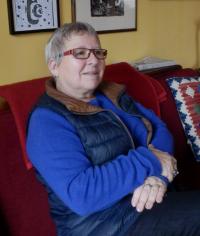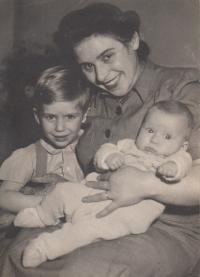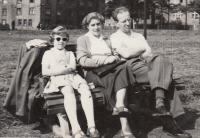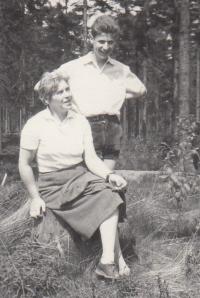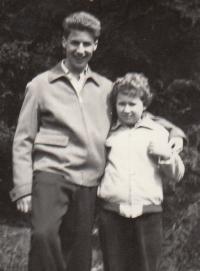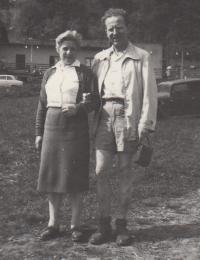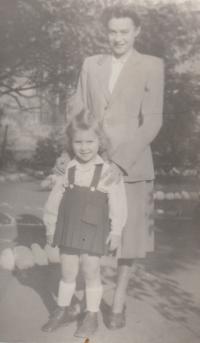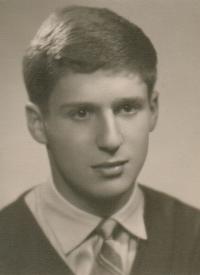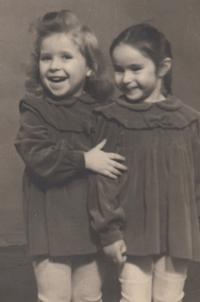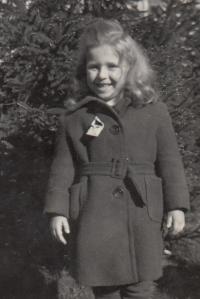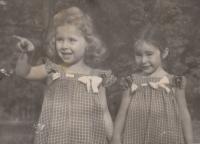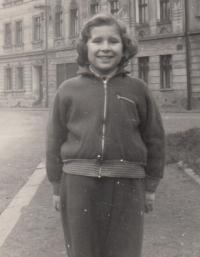Daddy was behind the glass and wire fence and secret police did not allow me to give the snow-whites to him

Stáhnout obrázek
Jarmila Kročková, née Fuchsová, was born on November 5, 1947 in Ostrava-Vítkovice. Her parents, both of Jewish origin, ran at the end of 1930s from Nazism to England. After war the family settled down in Ostrava. The father, Vítězslav Fuchsa, was a regional secretary of the communist party. In February 1951 he was tried in a political process for high-treason and sentenced for fifteen years in prison. Also the mum, Emilie Fuschová, ended up in custody for two years. Three years old Jarmila and six years old brother Milan were suddenly without their parents. Milan went to the children home and the witness to an older childless couple. After eight months the communists moved both children to their aunts. It happened due to their mother´s hunger-strike in custody prison. Until the age of six, Jarmila Kročková was growing up with her aunt in Košice. The father Vítězslav was preliminary released from prison due to health issues in autumn 1956. After his rehabilitation in 1963 he moved back to Prague. In 1966 the witness began working in the Institute for the Care of Mother and Child and two years later in the Institute of Inorganic Synthesis. During 1970-1973 she worked in the Institute of hygiene and epidemiology in the WHO labs, between 1975 and 1992 then as the head laboratory in the Institute of serums and vaccines. In 1992 she began working in a clinical research of a British pharmaceutical company, for which she did consulting jobs up until spring 2016. She has two kids and lives in Prague.
